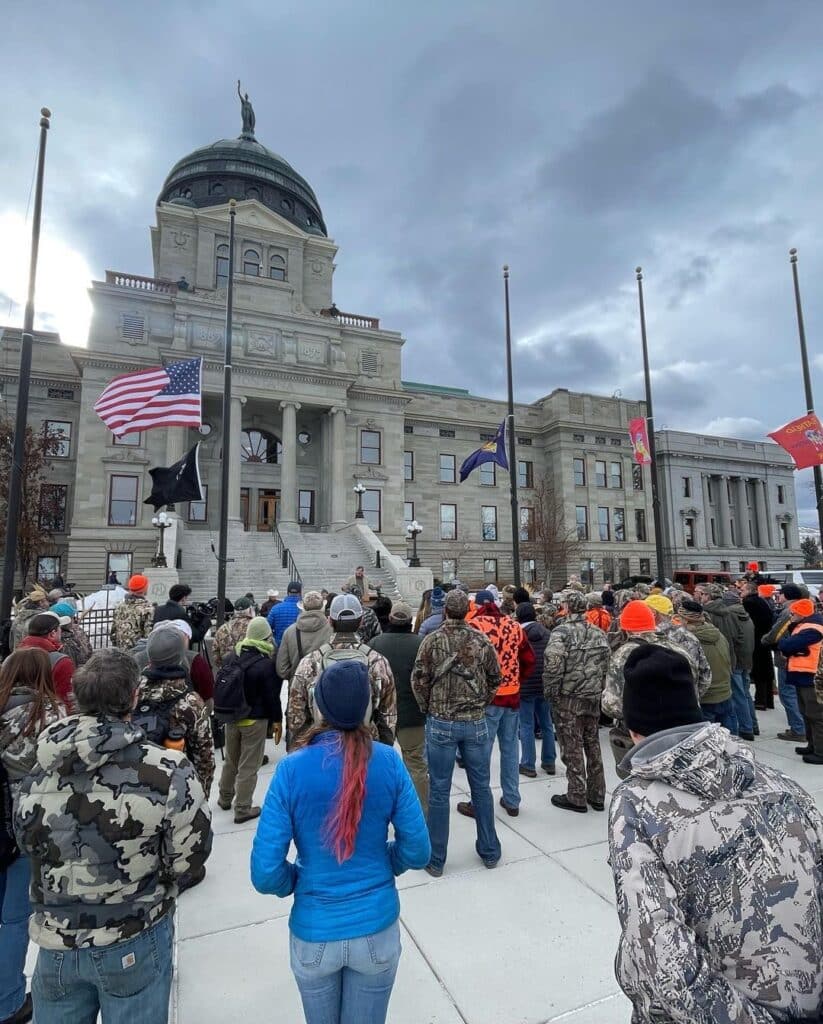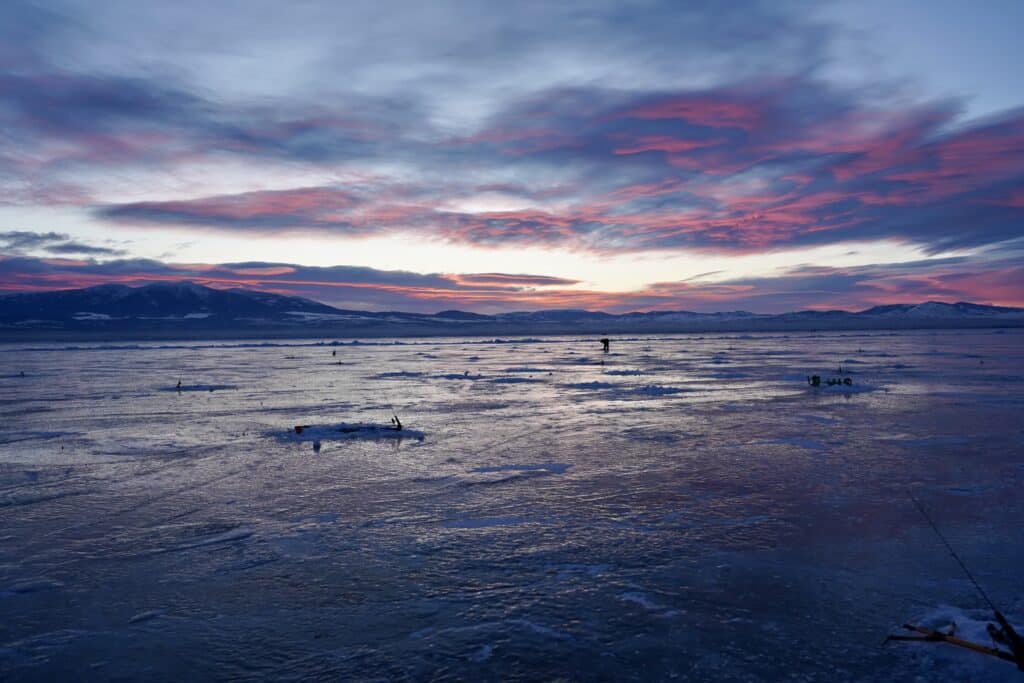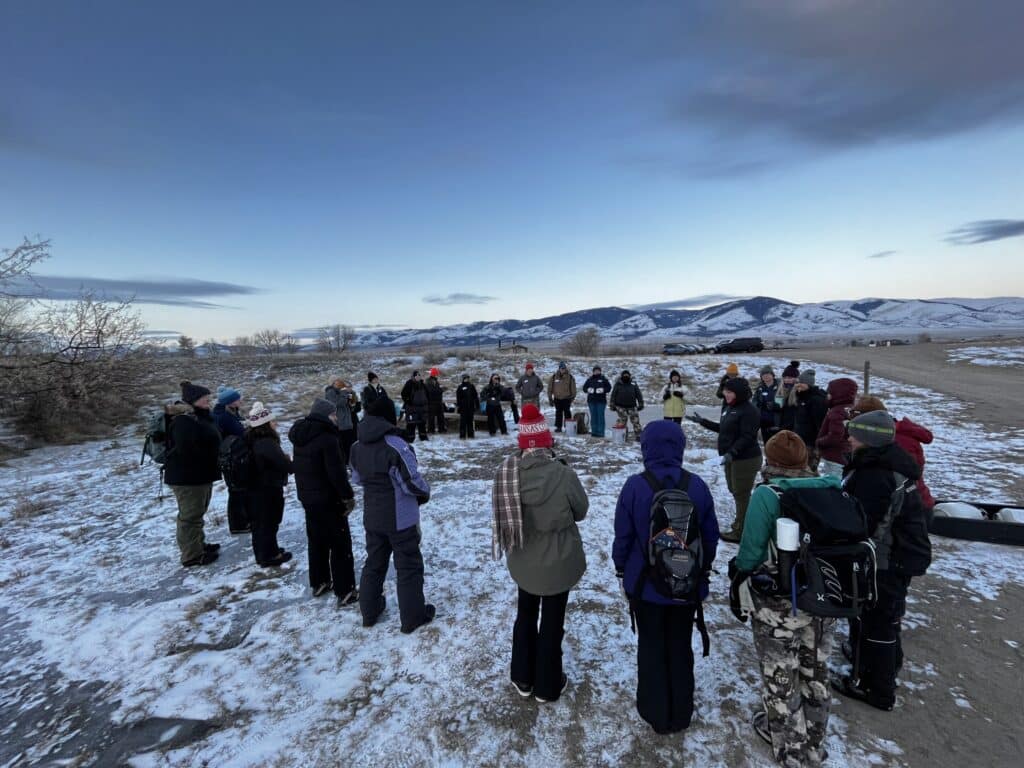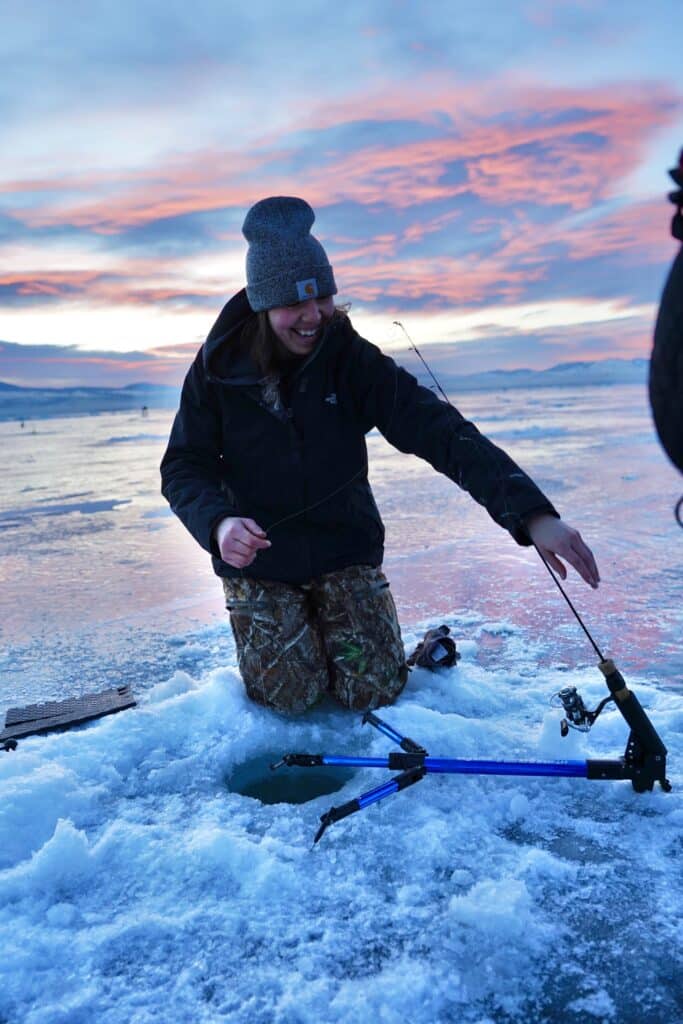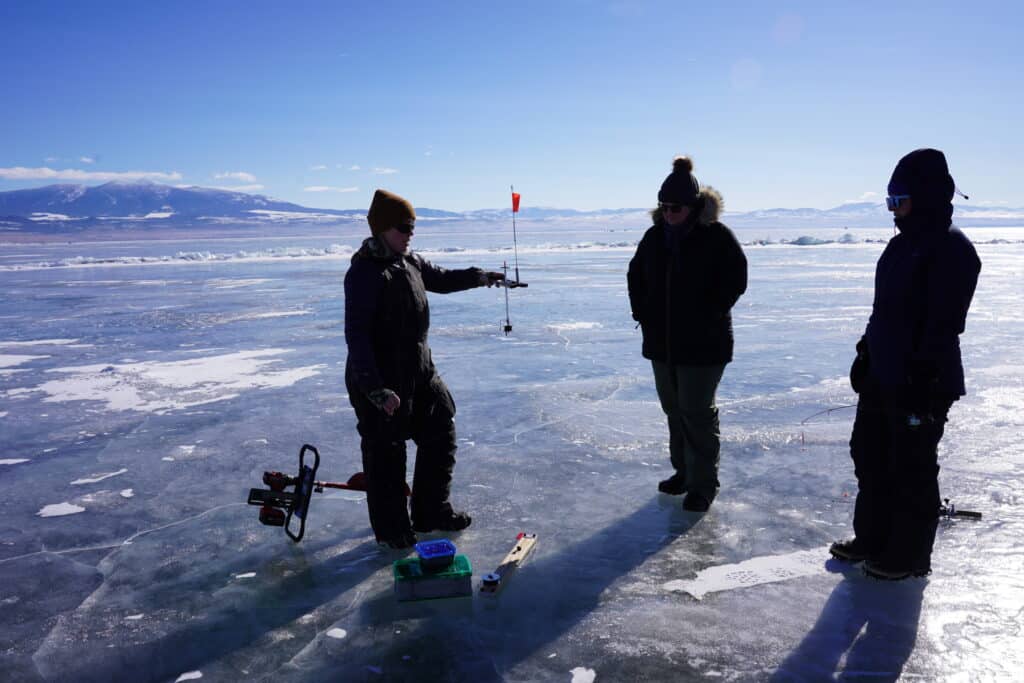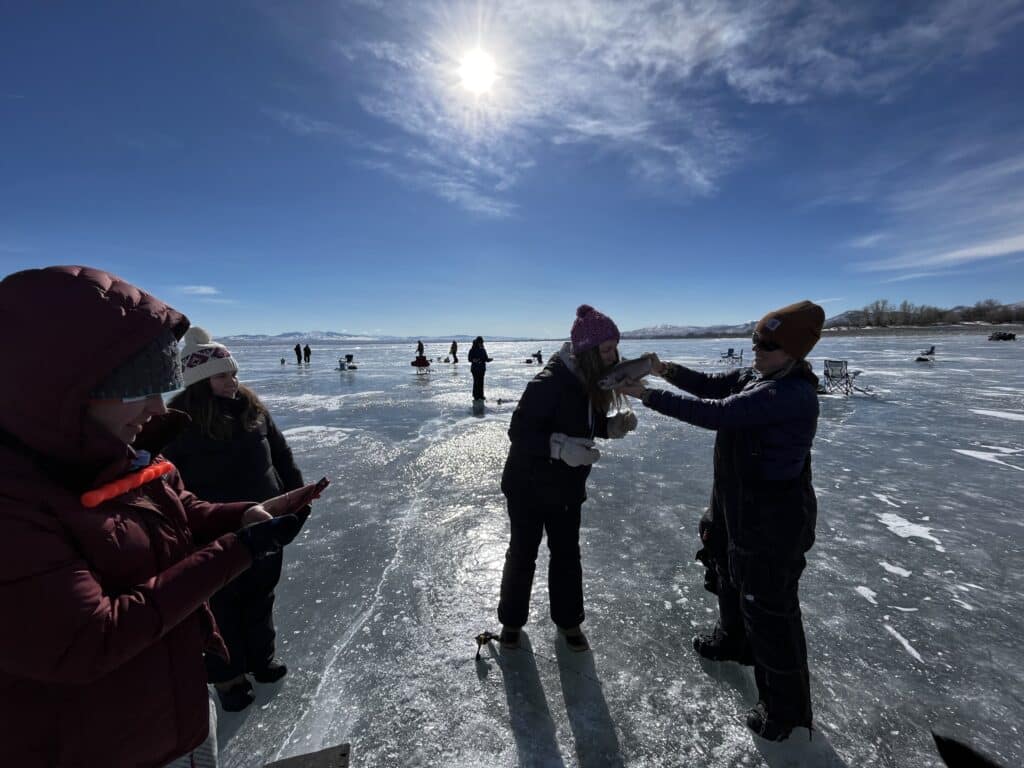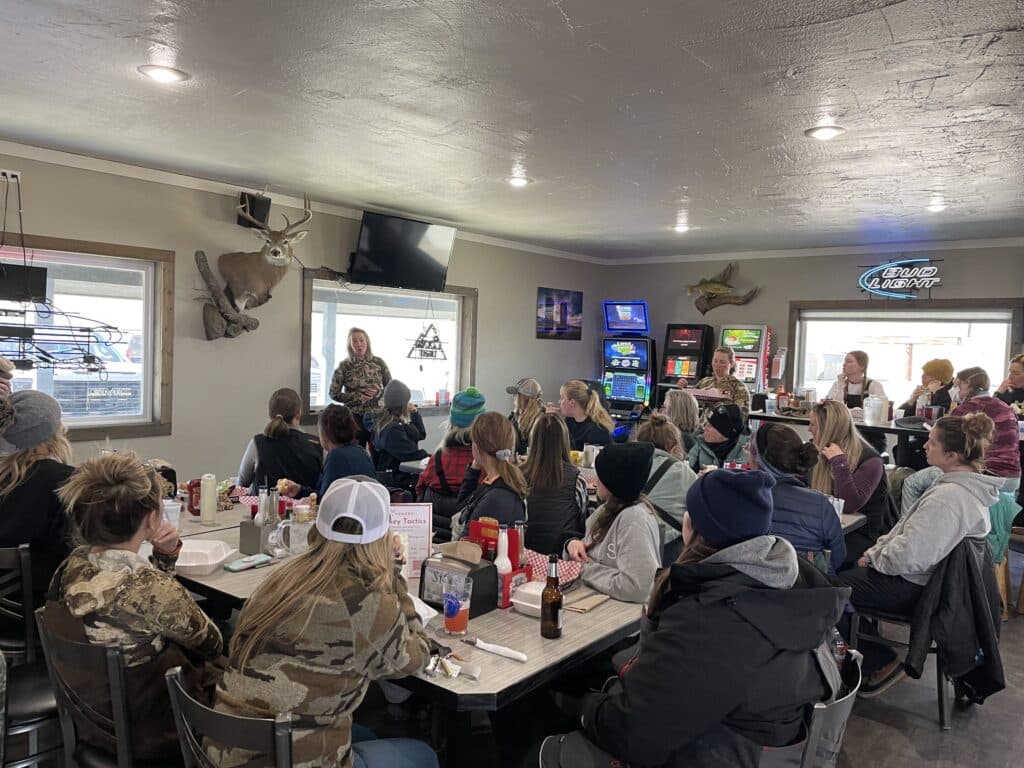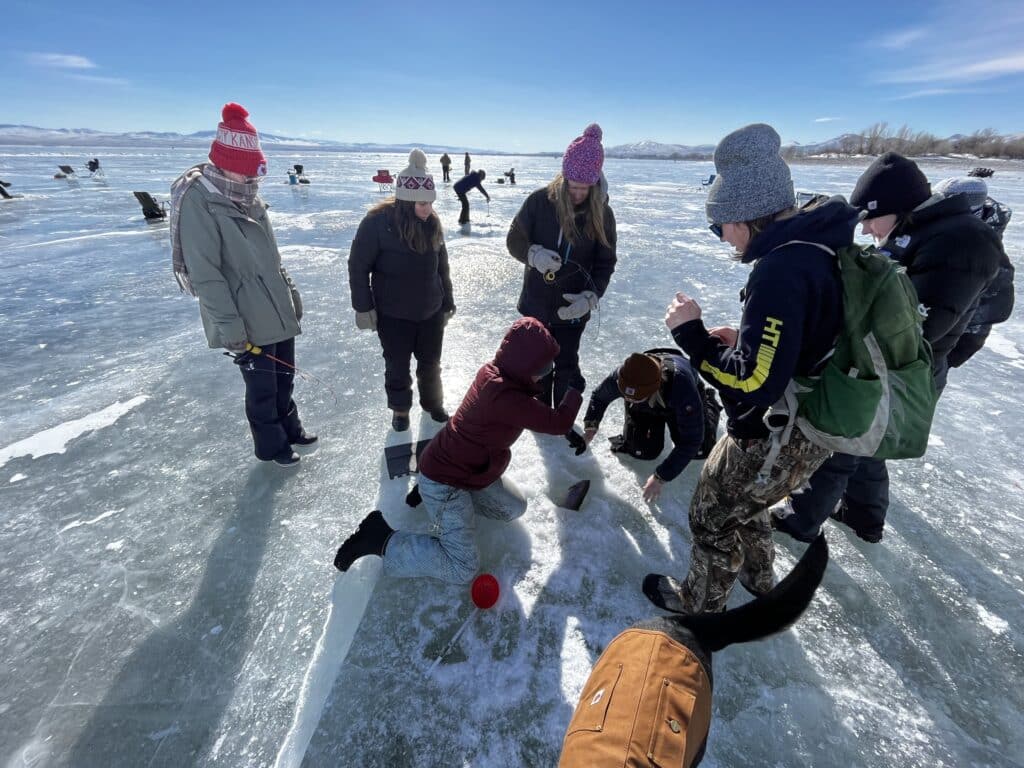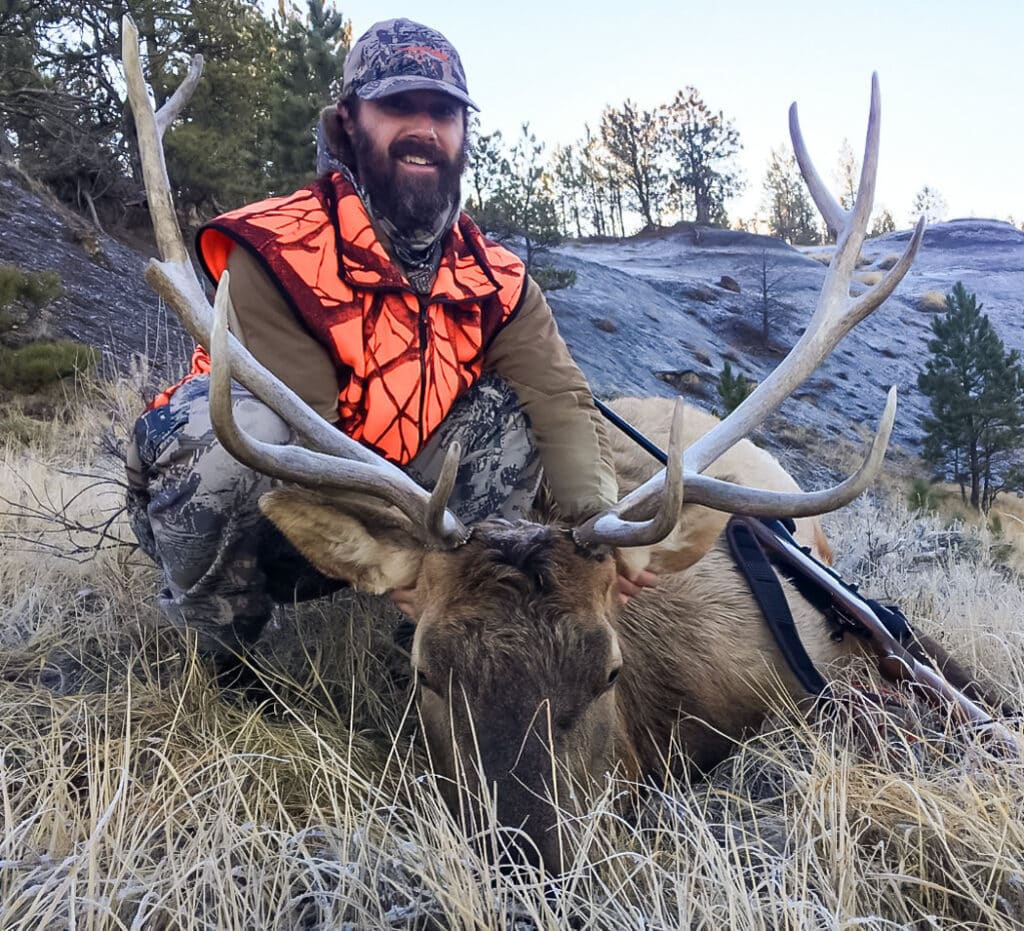The Montana Wildlife Federation and Wild Montana filed suit today to compel Governor Greg Gianforte and Secretary of State Christi Jacobsen to comply with their obligations under the Montana Constitution and allow the Montana Legislature the opportunity to override the Governor’s veto of Senate Bill 442 (“SB 442”).
On May 1, 2023, the Legislature passed SB 442—an overwhelmingly bipartisan, politically popular measure that directs recreational marijuana tax revenue to conservation and recreation programs, local infrastructure projects, and veterans’ services. Of 150 legislators, 130 voted to pass SB 442. The next day, the Governor vetoed the bill, but the Senate adjourned before the veto was communicated to the full Senate.
When the Governor vetoes a bill passed by a supermajority of legislators after the Legislature has adjourned, the Constitution requires that the Secretary poll the Legislature by mail. Normally, the Governor returns the bill with his reasons for veto to the Secretary, triggering the post-adjournment override process. When the Governor failed to take that step, Wild Montana—a nonprofit grassroots conservation organization that unites and mobilizes communities to keep Montana wild—and the Montana Wildlife Federation—Montana’s oldest, largest, and most effective wildlife conservation organization—called on the Governor to uphold the Montana Constitution and return the bill to the Secretary. The Governor refused, leading to today’s filing.
“Montanans are disappointed in Governor Gianforte’s veto of SB 442, a wildly popular bipartisan bill that made historic investments in conservation, public access, and rural infrastructure,” said Noah Marion, state policy director for Wild Montana. “But even more importantly, it’s the Governor’s duty to play by the rules. The Governor can’t obstruct the legislature’s authority with procedural trickery.”
“Contrary to the wishes of 130 legislators and countless Montanans, the Governor’s veto takes tens of millions of dollars away from wildlife, roads, rural communities, and veterans,” said Frank Szollosi, Executive Director for Montana Wildlife Federation. “Our Constitution provides that the Legislature gets a chance to override a veto. The executive branch cannot stand in the way.”
“The Montana Constitution empowers the Legislature to override a veto by a two-thirds vote in all circumstances—there are no loopholes,” said Constance Van Kley, Litigation Director of Upper Seven Law, who represents Wild Montana and the Montana Wildlife Federation. “The Governor cannot usurp the Legislature’s role with a creatively timed veto.”
The Montana Wildlife Federation and Wild Montana are working tirelessly to defend the integrity of the legislative process and protect Montana’s natural resources. You can play a crucial role in supporting their legal action by becoming a member of Montana Wildlife Federation and making a donation today.
By pursuing legal action, the Montana Wildlife Federation and Wild Montana strive to protect the integrity of the legislative process and ensure that Montanans’ voices are heard. To stay informed about this ongoing case and support the efforts of these organizations, subscribe to emails from the Montana Wildlife Federation. Together, we can uphold the principles of democracy and champion the preservation of Montana’s precious natural resources.
About Upper Seven Law: Upper Seven Law is a Montana-based nonprofit law firm dedicated to holding the powerful accountable. Based on the belief that creativity and innovation in law are essential to advancing social justice and public interest objectives, Upper Seven takes smart risks and invests the time necessary to build foundations for long-term accountability work.

